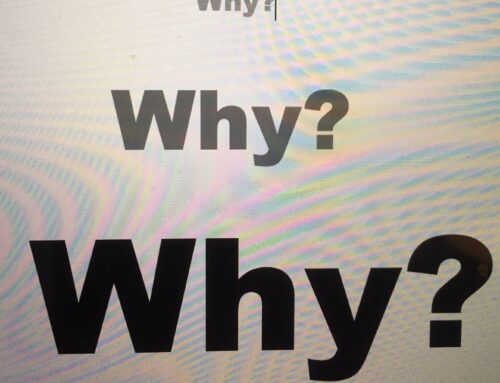This essay returns to the series “Good Habits,” which is based on my book of the same title. The discussion here concerns the habit of “Sound Reasoning.”

This false notion about opinions inflates people’s egos and takes away their interest in sound reasoning. Since they believe they already possess the truth, they see no danger of error and therefore no need to reason carefully. Furthermore, they believe that whoever agrees with them must be correct, and whoever disagrees must be wrong and perhaps malicious. That belief makes them gravitate to news sources that flatter their viewpoints and dismiss those with different views as enemies of the truth. If some of their friends or relatives are among that number, they cut off relationships with them and feel righteous in doing so.
Replacing such false notions helps us become better thinkers, advance our understanding, and enrich our lives. Here is how to do so.
Remind yourself that making mistakes is part of being human. This may seem too simple to bother with, but it a necessary step. Being alert to this fact can help you realize that your opinions (and other people’s) need to be tested before they can be trusted. Also, that such alertness needs to be ongoing because even if the best information available today supports an opinion, new information next month or year may lead to a different view.
Be cautious making assumptions. The fact that you feel strongly for or against a point of view can make you assume that no other view has merit. This is especially so when a large number of people agree with you. Being careful about assumptions will keep you from rushing to judgment.
Recognize controversies. This is not as easy as it sounds. Many of today’s news sources have discarded their commitment to unbiased reporting, and instead ignore all views except the ones they favor. Such sources can lead you into thinking, “No controversy here; the issue is settled” when it is far from settled. As a result, you may remain ignorant of other perspectives that deserve consideration. To avoid this, whenever you encounter any issue in the news, seek out differing viewpoints, and compare them before making a judgment. (If after doing this several times and finding that your news source is unreliable, switch to a reliable one.)
Avoid common errors in thinking. The major errors in thinking have been known for hundreds of years, but if you have never taken a course in logic (or have taken one but forgotten what you learned) you may make them without being aware. The following nine are among the most common:
Mine is better thinking. This error is seldom at the surface of our minds but instead taken for granted and hidden from our awareness. To fairly examine new ideas, we need to consciously choose to open our minds.
Selective perception. Even when our minds are open to new ideas, we will tend to favor the only the parts that fit well with our existing ideas. So we need to check that tendency and give a fair hearing to other parts as well.
Confusing assertion with evidence. Saying something is so doesn’t make it so. Nor does citing other people who have said it or using words like “reportedly.” Assertions like these carry no weight. In contrast, evidence provides a basis for saying something is so, and if sufficient, makes acceptance reasonable.
Either/Or thinking. This error consists of taking an “all or nothing” attitude toward conflicting ideas. In other words, it rules out the possibility of choosing part of each idea and combining the parts into a new whole. We can overcome the error by reminding ourselves that such a combination is sometimes the most reasonable approach.
Overgeneralization. This error occurs by saying “all” or “none” when “some” or “many” is more appropriate, as in “Feminists hate men,” “City dwellers are less friendly than suburbanites,” and “Highly educated people lack common sense.” We may consider such errors as being too minor to be concerned with, but they signal to others that we think carelessly and therefore lack credibility.
Oversimplification. Simplifying can be useful in explaining complex matters to those who have difficulty understanding them, such as nuclear energy to young students. But oversimplifying is never acceptable because it ignores complexity and distorts reality. An example is the statement “Giving people a handout makes bums of them.” Perhaps it does so in some cases, but in some cases it does the opposite so it is a mistake to generalize.
Explaining away. This error makes excuses for justifying unpleasant truths. For example, if a person cashes a check sent to him in error, he may say to himself, “This makes up for all the times I’ve been overcharged in stores.” At best, this manipulates reasoning to deceive oneself.
Changing the subject. This error is found in discussion and debate, but it begins in the reasoning process. It is common in political, legal, and philosophical conversations when the speaker feels he/she has nothing meaningful to say about the subject at hand and instead turns to something else, notably the character of the other speaker(s). It generally arises from purposeful dishonesty rather than carelessness.
Hasty conclusion. This error consists of passing judgment without sufficient evidence. Though it is one of the most common errors in reasoning, it can fortunately be easily corrected, simply by putting greater effort in gathering and evaluating evidence.
Applying good thinking habits to current and future issues is obviously important. But it is equally important to re-examine opinions you have formed about past issues. Not only is it never too late to revise a flawed view—doing so is the mark of a trustworthy thinker.
Copyright © 2025 by Vincent Ryan Ruggiero. All rights reserved.



